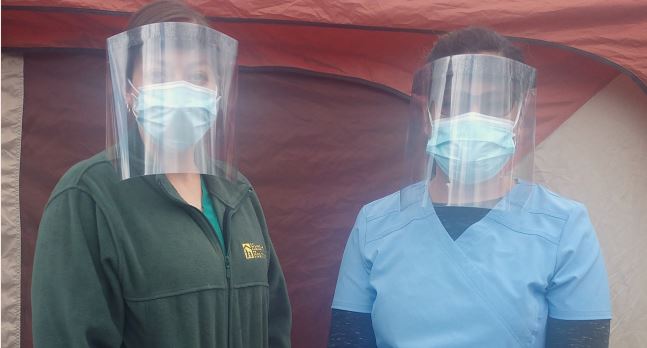A new report out on the impact of COVID-19 finds the most vulnerable in the South Asian American community have been the most adversely impacted.
Entitled Unequal Consequences, The Disparate Impact of COVID-19 across South Asian American communities says those facing uncertain immigration status, living with underlying health conditions, unsafe work environments and experiencing domestic violence have been most directly affected.
The report from South Asian Americans Leading Together or SAALT discovered almost every survivor support group interviewed mentioned a significant increase in domestic violence.
Statistics on South Asian Americans are extremely hard to find as South Asians are often hidden under the categories of “unknown” or “other Asians.” However, in New York, where 7.6% of the city’s coronavirus victims were of Asian descent, 20% of those deaths were Bangladeshi Americans. Yet Bangladeshi Americans make up less than 8% of the city’s Asian population.
South Asian Americans are four times more likely to suffer from heart disease or diabetes, putting them at greater risk, says the report. The prevalence of multi-generational households in the South Asian American community also compounds that risk.
SAALT also found very few bilingual resources meeting the needs of its community. Many non-profits have been forced to fill the void left by the government.
630,000 undocumented Indian Americans and 56,000 Pakistanis were ineligible for the CARE Act, further aggravating the impact of the pandemic. 85% of respondents to SAALT’s community survey are worried about immigration – specifically being able to travel outside of the U.S., as well as anxiety over recent executive orders targeting green cards, H-1B work visas, and student visas.
“One of the most important lessons from watershed moments of crisis, like 9/11, the 2016 presidential election, and now the COVID-19 pandemic, is that South Asian American communities have deeply divided experiences,” said Lakshmi Sridaran, SAALT’s Executive Director. “The South Asian populations in the U.S. who were primarily targeted after 9/11, most impacted by this Administration’s racist policies, and most vulnerable to COVID-19 are also the populations most marginalized within our own communities because of immigration status, class, caste, religion, and LGBT + identity. While developing a shared narrative across these differences is valuable for building collective power, only by centering the experiences of these populations do we truly understand the magnitude and range of impact of these crises.”
AsAmNews has Asian America in its heart. We’re an all-volunteer effort of dedicated staff and interns. Check out our new Instagram account. Go to our Twitter feed and Facebook page for more content. Please consider interning, joining our staff, or submitting a story.


